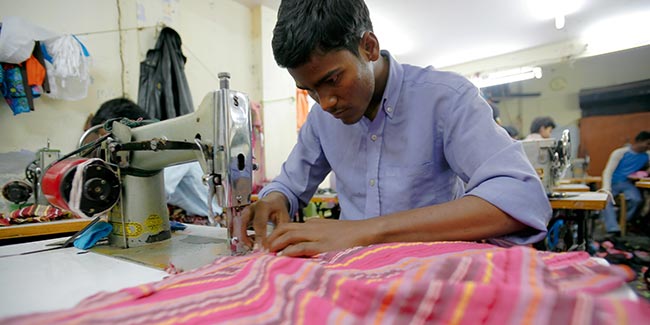Which sectors are at risk?
Many Dutch companies transact business internationally for example because they outsource their manufacturing abroad. That means that they run the risk of being implicated in corruption, exploitation or environmental pollution, for example. By signing International Reponsible Business Conduct (IRBC) agreements, businesses, government and other stakeholders try to prevent these risks.
KPMG analysed these risks in 2014. It divided them into the categories environment, labour and human rights, covering such issues as soil contamination, unhealthy working conditions, and dispossession of land. KPMG analysed the risks in twelve different sectors. Its report can serve as a roadmap for concluding IRBC agreements.
The table below lists the risks observed by KPMG.
ENVIRONMENT
• Greenhouse gas emissions / air pollution (all sectors)
• Water and soil pollution (chemicals, metalworking, agriculture and horticulture, oil and gas, etc.)
• Water scarcity (garments and textile, food, agriculture and horticulture, etc.)
LABOUR
• Unhealthy and unsafe working conditions (all sectors)
• Child labour (electronics, textile, food, etc.)
• Women’s rights (electronics, metalworking, garments and textile, food, agriculture and horticulture, etc.)
HUMAN RIGHTS
• Dispossession of land (chemicals, wood and paper, food, etc.)
• Deprivation of (the right to) a clean, safe, healthy living environment (construction, metalworking, oil and gas, etc.)
• Depletion of natural resources (energy, oil and gas, etc.)
'CSR Sector Risk Assessment Considerations for dialogue'. KPMG Advisory N.V, 2014
Are you interested in signing one of the agreements? Please contact us.

